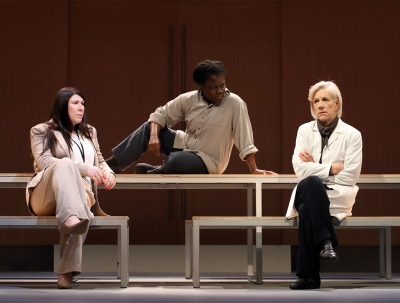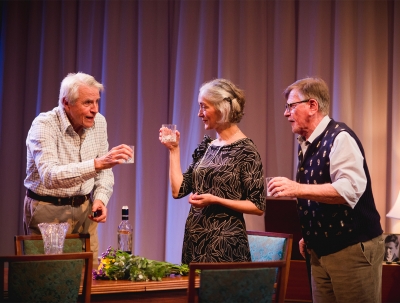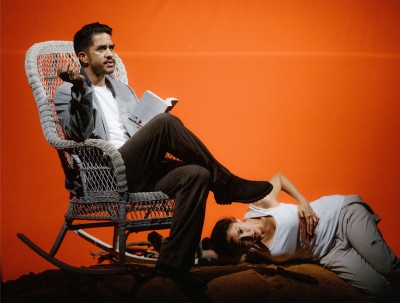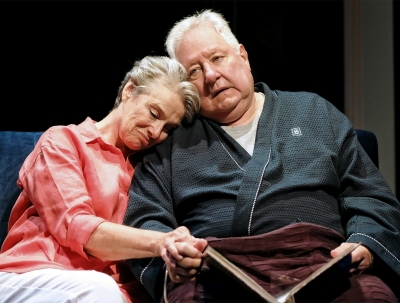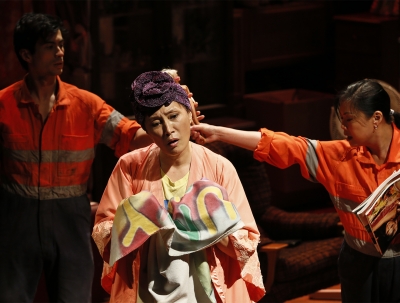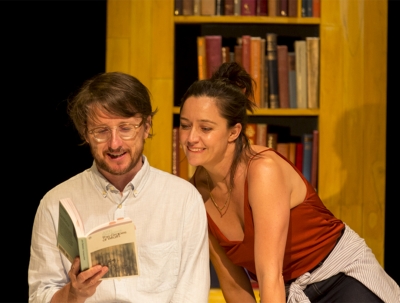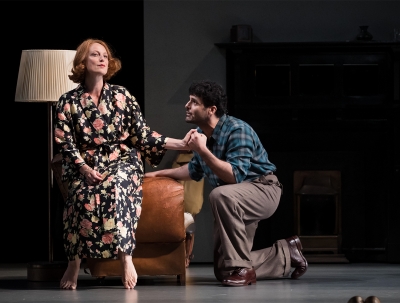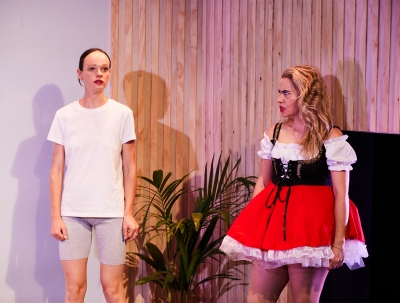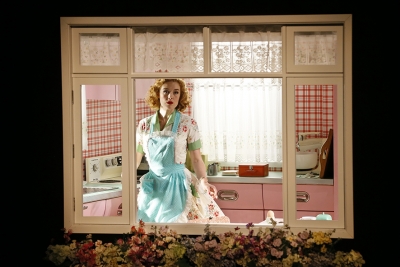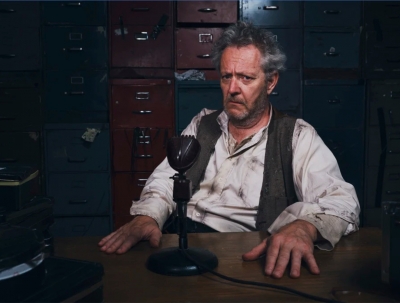Theatre
No one would maintain that Schnitzler’s original text does not need cutting and shaping for an updated presentation of the issues he was concerned with back in 1912. (One of the drollest observations about Schnitzler’s style comes from Franz Kafka, who noted that ‘it is replete with the quavering hollowness of literary pretensions’, though he was speaking specifically of Schnitzler’s late works.) But a play like Professor Bernhardi is no more nor less overwritten than some of Shaw. Here, at every turn, Icke’s ‘re-imagining’ (and his direction) opts for crude juxtaposition, where Schnitzler’s outlining of the issues can accommodate both subtlety and directness, ambiguity and clarity. And Icke’s simplification is reflected in the performances of most of the actors
... (read more)A boarding house, late evening. Two elderly men pace fretfully, unable to settle. They are, we learn, waiting for their landlady to return home. She goes out rarely and tonight is later than usual. Should they play cards? No, says one of the men, I always lose. I’ll let you win, says the other. Then there’d be no point in playing, rejoinders the first.
... (read more)A play begins its conversation with an audience well before the house lights go down. Marketing images, PR blurbs, interviews – they all launch the process of introducing the work, of situating it in the world. By opening night, the audience is primed. A good production slips seamlessly from the abstract to the real, maintaining a coherent identity from marketing copy to stage. The Great Australian Play, now playing at Theatre Works, promises a scathing indictment of the emptiness at the heart of our national mythology. Instead, it delivers a meandering portrait of a writer who is embarrassed by his own source material.
... (read more)David Williamson is a giant of Australian theatre. Crunch Time – his final play before retiring – comes after fifty years of cutting critiques of Australian culture with much focus on Australian masculinity, heterosexual relationships, and family drama across unique and surprising milieux.
... (read more)When attempting to cajole a compulsive hoarder into cleaning up, it’s advisable to start with the things are worth worth keeping, but it shouldn’t distract us from taking out the trash. Ubiquitous television and print personality Benjamin Law’s first foray into playwriting, Torch the Place, is one of four new works appearing in NEXT STAGE Originals, Melbourne Theatre Company’s new commissioning endeavour, the only one that doesn’t come from an established playwright. While there are several things to like in this début, there are a number that should be consigned to the skip.
... (read more)I made the mistake of rereading Peter Goldsworthy’s 1993 novella before seeing Steve Rodgers’ adaptation of Jesus Wants Me for a Sunbeam at Belvoir St Theatre, so I knew the play’s advertised surprise ending and may have been resistant to its emotional charge. At its première production for National Theatre of Parramatta at the Riverside Theatre in 2018, it was said to reduce audiences to tears. Some audience members could be seen wiping their eyes after the opening night performance at Belvoir.
... (read more)The seismic shift which occurred in the British theatre with the success of John Osborne’s Look Back in Anger in 1956 left Terrence Rattigan high and dry. Writing for the ideal audience member he dubbed ‘Aunt Edna’ – a very different creature from her flamboyant Australian namesake – he supposedly fashioned plays that were designed to entertain the middle classes without disturbing them unduly. But a close reading of his more serious plays proves him to be every bit as trenchant a critic of British society as the ‘angry young men’ – Osborne, Wesker, and Arden – who took over the theatre in the 1950s and 1960s.
... (read more)If alien life landed on Earth and we had to explain to them the habits of the white middleclass, it would be understandable if they thought we were insane. CrossFit looks like creative torture, leadership webinars are bizarre rituals in self-congratulation, and engagement parties lead to nothing but familial misery. Framed by the unrequited love story of a woman who can’t (or won’t) fit into polite society, Nick Coyle’s black comedy The Feather in the Web skewers the bourgeois obsession with career, status, and wellness.
... (read more)Judy and Johnny live a blissful 1950s life. While he readies himself for a day at the office, she twirls around the kitchen preparing his breakfast. They are, they declare, ‘sickeningly happy … utterly content’. The twist that comes at the end of the first scene of Home, I’m Darling has been heavily signposted in pre-publicity, so it’s not giving anything away to say that we are not in the 1950s at all.
... (read more)‘Be again. (Pause) All that old misery. (Pause) Once wasn’t enough for you.’ Reminiscing is rarely a happy experience for Samuel Beckett’s characters, least of all for that most autobiographical of his creations, Krapp. In reply to a friend who had sent him a letter mentioning their good old days in pre-war Paris, Beckett brusquely wrote that there were neither good old days nor good new days. There were no good days at all. As his biographer Deirdre Bair puts it: ‘to yearn for anything in life, past or future, was unrealistic and a waste of time’.
... (read more)

